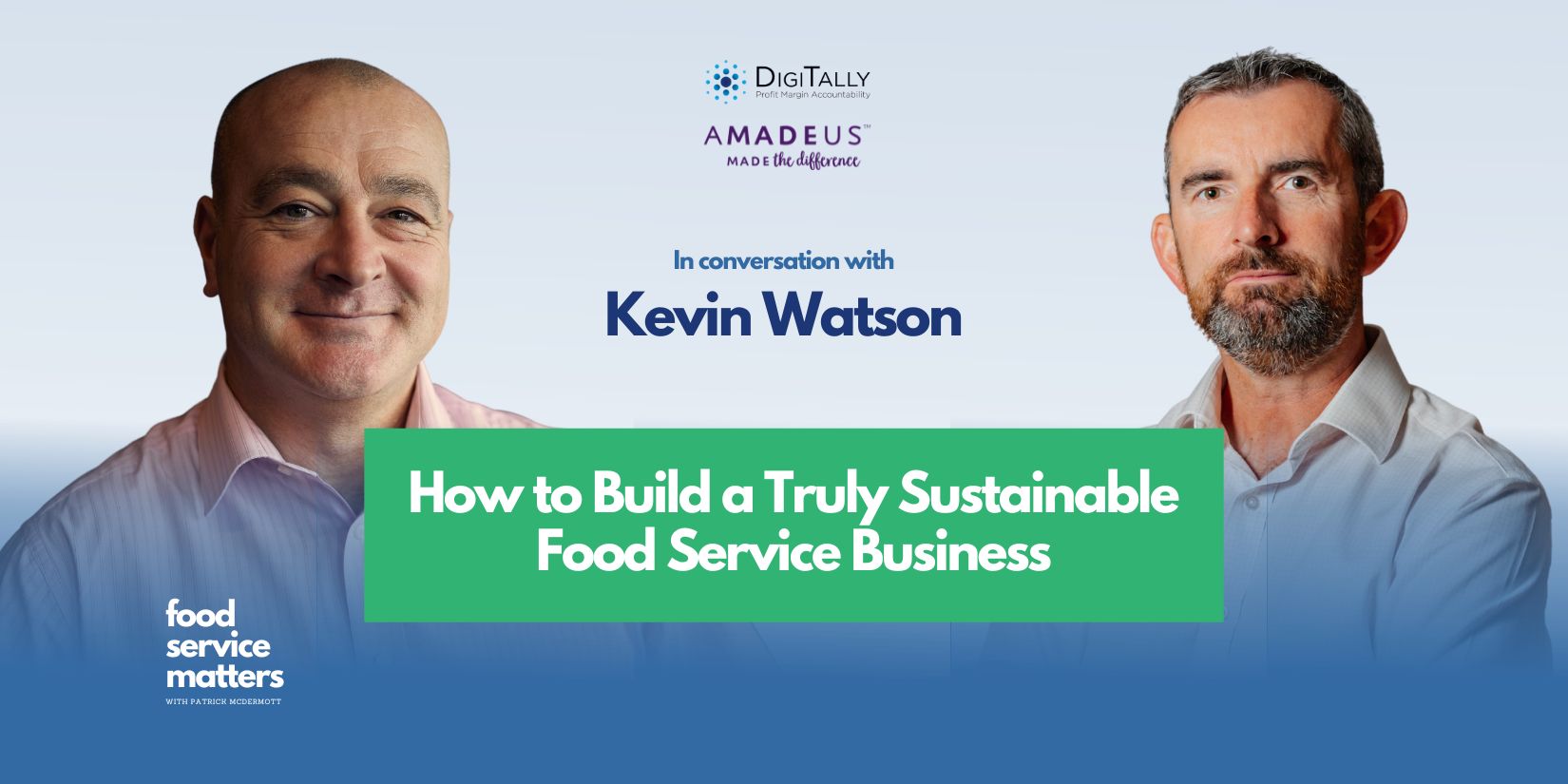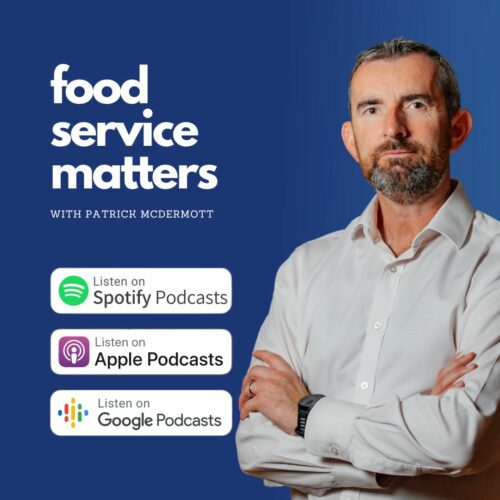
The food service industry prepares millions of meals each day, resulting in massive amounts of food waste and negative environmental impact. On the surface, this may seem like a losing battle. However, with some careful planning and creative thinking, sustainability and eco-friendly practices in the food service industry are actually possible.
In episode five of the Food Service Matters podcast, host Patrick McDermott interviews Kevin Watson, Managing Director of Amadeus Foods, an award-winning corporate, private and wedding event catering company, which counts NEC Birmingham as one of its major clients.
Kevin shares techniques used by his large-scale operation, all of which can be applied by other businesses in the food service industry looking to decrease their environmental footprint.
Reduce waste in operations
Minimising food and operational waste is the first step towards sustainability.
“Regarding waste management, we operate a couple of systems where we’ve reduced our waste by over 50 per cent,” Kevin highlights. “And 98 per cent of our disposable packaging is biodegradable, recyclable and compostable.” These technologies and practices have been implemented to keep up the company’s pledge of sending zero waste to landfills.
Donating surplus food to people in need is another key way of reducing food waste. Kevin describes partnering with local organisations that help distribute leftover food. “We’ve found three companies that are happy to collect packaged food waste that’s still safe and edible, which we would potentially be wasting,” he explains.
Support local communities
In conjunction with the business’ food waste efforts, Kevin discusses giving back to the local community by supporting homeless shelters. These community outreach efforts are a critical tool for companies to demonstrate their commitment to sustainability.
“There are a few local places in the centre of Birmingham where we distribute food among the homeless – food that would potentially go to waste otherwise,” adds Kevin. “It could be drinks in the warm weather or warm food in the cold. We also collect clothing, and it’s amazing what just a pair of socks or a blanket can do.”
Local community support comes in many forms. It could mean volunteering at food banks, donating a portion of business profit to local charities, offering apprenticeships or making hiring decisions which support vulnerable groups. The latter is one of the initiatives currently being implemented at Amadeus Foods. “We’re trying to encourage homeless individuals into employment,” he explains. “By working with a local charity and shelter, we can give them an address and offer them work. Then, six weeks later, they have the chance to leave the shelter and live in their own home.”
Communicate efforts to customers
Spreading awareness about their sustainability efforts is one challenge large food service businesses face. Kevin points out that while transparency is important, care should be taken so that these messages don’t come across as too didactical. “Constant awareness without being preachy is where I think the balance needs to be,” he highlights.
Kevin describes how Amadeus Food uses its menus, venue websites and ticketing platforms to share its waste reduction, community engagement and net zero carbon goals and efforts.
“On the venue websites, before you book your tickets or if you’re perusing the content, there’s information about what we’ve done and why,” he says. “The same goes for when you receive your ticket, as there can be some information on the back of it.”
Communicating sustainability efforts in this way, even briefly, demonstrates to customers that their patronage makes a difference. “Whether consciously or subconsciously, people are definitely making their decisions based on this messaging,” Kevin concludes.
These valuable insights show that by utilising such practices, companies can reap both environmental and customer satisfaction rewards. As Kevin points out, harnessing the power of technology can help build a sustainable business more quickly. In fact, digital solutions like DigiTally, an intuitive food service software, equip food service providers with the tools to easily track stock levels, which enables them to reduce food waste and demonstrate their commitment to an industry with a healthier future.
To listen to Patrick’s full interview with Kevin Watson, check out the Food Service Matters podcast on Spotify, Apple Podcasts or Google Podcasts.
Patrick is CEO of DigiTally, which is playing an increasingly important role as an intuitive and interconnected simple food service software that helps save time, increase margins and combat food waste. Keen to learn more? Let’s talk! Book a 30-minute call with Patrick and get your demo set up today.



